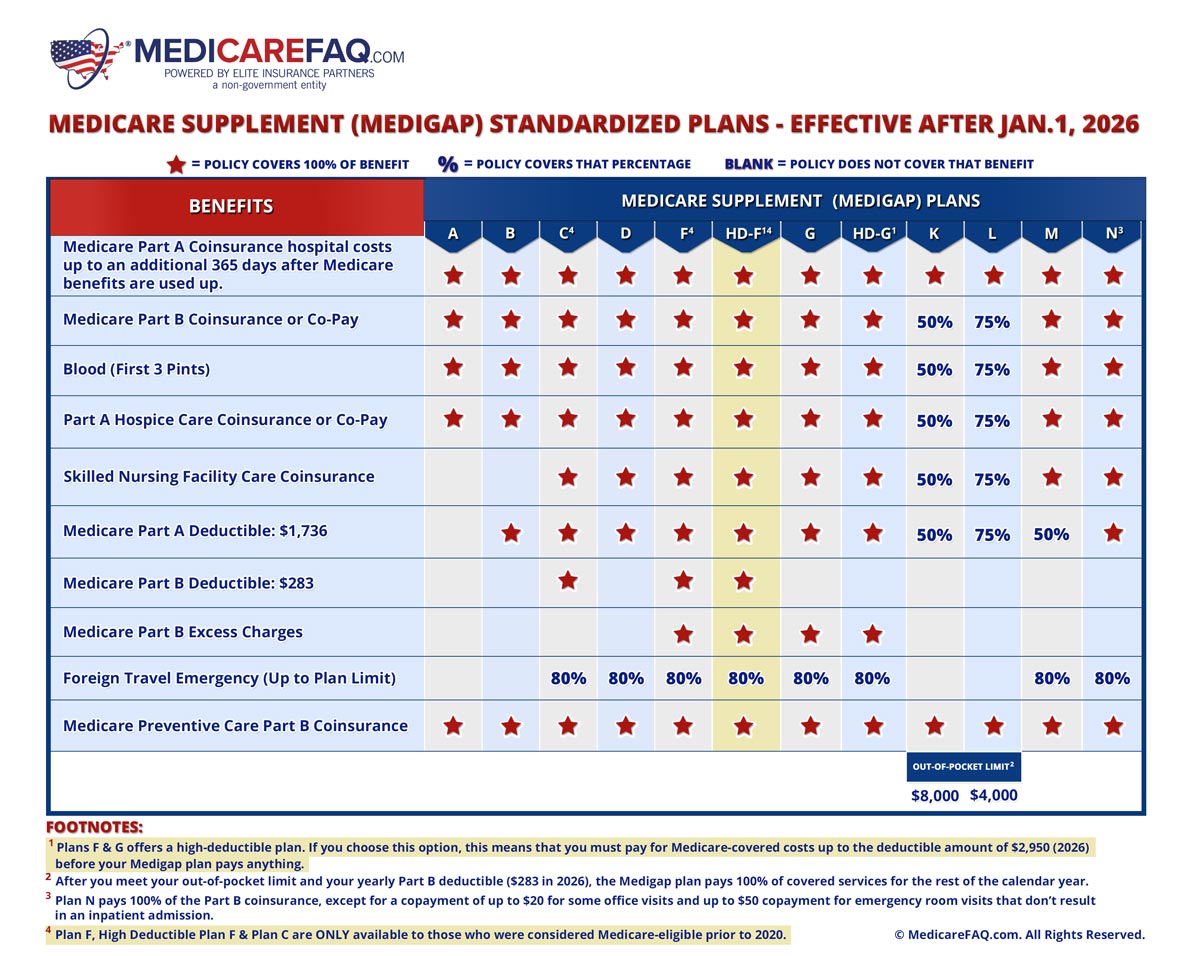So, you're staring down the barrel of Medicare, and suddenly you're drowning in a sea of supplemental plans. It's like choosing a cable package, except the stakes are, well, your health. And Plan F? It's the premium cable package of the Medicare world. But is it worth the price of admission? Let's dive in.
Medicare Plan F, or let's just call it the Cadillac of Medigap plans, was the gold standard, the top dog, the big kahuna of supplemental coverage. It used to cover practically everything Medicare didn't, leaving you with virtually no out-of-pocket expenses. Doctors' visits, hospital stays, the works – Plan F had you covered. But the landscape shifted. Changes in Medicare law meant new plans emerged, and Plan F, while still available to some, is no longer an option for everyone.
The history of Medicare supplemental insurance, or Medigap, is rooted in addressing the gaps in original Medicare coverage. Recognizing that Medicare Part A and Part B didn't cover all healthcare costs, private insurance companies stepped in to offer supplemental plans, standardized with letter designations like Plan F. These plans became critical for many seniors, helping to manage out-of-pocket expenses and providing peace of mind. Plan F, with its comprehensive coverage, quickly became a popular choice.
The main issue surrounding Plan F is its availability. Due to changes in Medicare law, Plan F is no longer available to those newly eligible for Medicare after January 1, 2020. This means if you weren't already enrolled in Medicare before that date, you can't sign up for a new Plan F policy. However, if you were already enrolled in Plan F, you can keep your coverage. This change aimed to encourage cost-sharing and potentially lower Medicare spending overall.
Essentially, a Medicare Supplement Plan F, or Medigap Plan F, is designed to pick up where original Medicare leaves off. Imagine Medicare covering 80% of a medical bill, and Plan F swooping in to cover the remaining 20%. This can include things like copayments, coinsurance, and deductibles. For example, if you have a hospital stay and Medicare covers the majority of the cost but leaves you with a $1,000 deductible, Plan F would typically cover that deductible.
One benefit of Medicare supplement Plan F is predictable costs. Knowing what your out-of-pocket expenses will be helps with budgeting and financial planning. Another benefit is freedom of choice when it comes to doctors and hospitals that accept Medicare. You aren't limited to a network, unlike some Medicare Advantage plans. A third advantage is travel coverage. Many Medigap plans, including some Plan F options, provide coverage for emergency care while traveling abroad.
Advantages and Disadvantages of Medicare Supplement Plan F
| Advantages | Disadvantages |
|---|---|
| Comprehensive coverage | Higher premiums |
| Predictable costs | Not available to new Medicare beneficiaries |
| Freedom to choose any doctor who accepts Medicare | |
| Foreign travel emergency coverage (some plans) |
If you're currently enrolled in Medicare Part A and Part B and were eligible for Medicare before January 1, 2020, you might consider looking into a Plan F. Contact different insurance providers to compare premiums and coverage details. It's important to carefully weigh the costs and benefits to make the best decision for your individual situation.
Frequently Asked Questions:
1. What does Medicare Plan F cover? Generally, it covers most of the gaps in Original Medicare, including copayments, coinsurance, and deductibles.
2. Can I still get Plan F? Only if you were eligible for Medicare before January 1, 2020.
3. What's the difference between Plan F and other Medigap plans? Plan F offers the most comprehensive coverage but also tends to have the highest premiums.
4. How much does Plan F cost? Premiums vary depending on the insurance company, your location, and your age.
5. How do I find a Medicare Plan F provider? You can compare plans and providers on the Medicare.gov website.
6. Is Plan F worth it? It depends on your individual health needs and budget.
7. What are the alternatives to Plan F? Other Medigap plans (like Plan G or Plan N) and Medicare Advantage plans are alternatives.
8. Can I switch from Plan F to another plan? You can switch Medigap plans during certain times of the year, but you may be subject to underwriting.
Making decisions about your healthcare can be overwhelming. Navigating the maze of Medicare and supplemental insurance options requires careful consideration of your individual needs and budget. Medicare Plan F, while no longer available to new beneficiaries, remains a valuable option for those who enrolled before the 2020 cutoff. It offers comprehensive coverage and predictable costs, providing peace of mind for many. Understanding the complexities of Plan F, including its history, benefits, and limitations, is essential to making informed decisions about your healthcare future. Take the time to research and compare options, and don't hesitate to seek guidance from a qualified insurance professional to find the plan that best suits your needs. If you're enrolled in Medicare, understanding your supplemental options is crucial. Take the first step and explore your options today.
Locked out of gmail regain your account access now
Is this for real navigating the unbelievable
Navigating missouri trailer titles
Medicare Supplement Plans Medigap - Khao Tick On
What Are The Best Medicare Supplemental Companies - Khao Tick On
Aarp Medicare Supplement Plan F - Khao Tick On
Aarp Medicare Supplement Plan F - Khao Tick On
Devoted Health Advantage Plans 2024 List - Khao Tick On
Medigap Plans Washington State 2024 - Khao Tick On
Devoted Health Medicare Advantage Plans 2024 Florida - Khao Tick On
New Era Supplemental Plan - Khao Tick On
Medicare Supplement High Deductible Plan F Pros and Cons - Khao Tick On
2024 Medicare Fee Schedule Chiropractic In India - Khao Tick On
Medicare Plans 2024 Florida Cost - Khao Tick On
Chart Supplement User Guide - Khao Tick On
Medigap Plans Washington State 2024 - Khao Tick On











